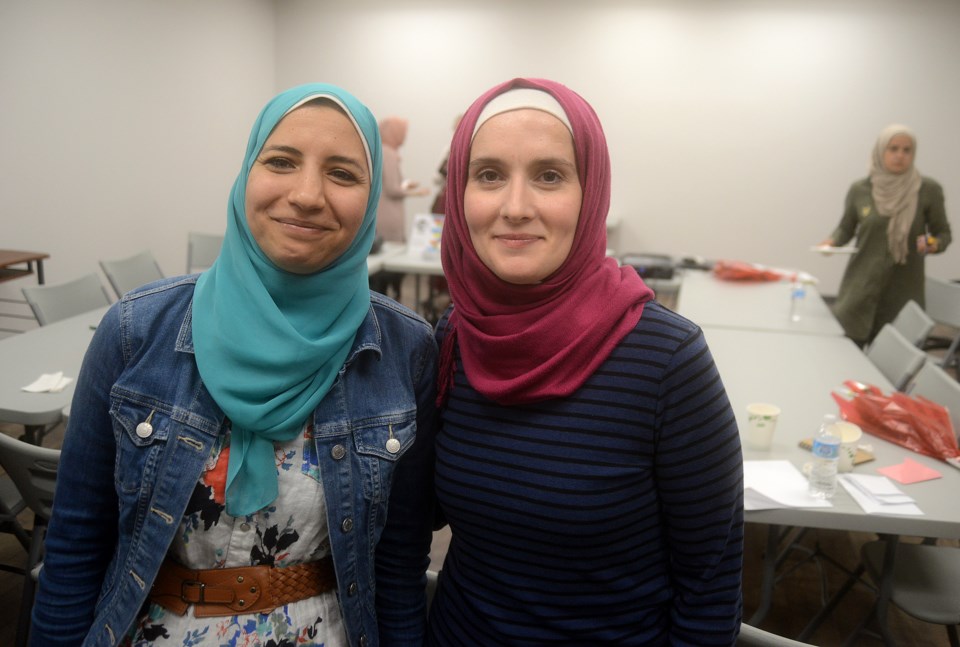The Moose Jaw Multicultural Council has released the second part of its community Q&A project, with this week’s questions focusing on losing cultural heritage, employment, and financial assistance.
The first week of Q&As can be found here. Kaleigh Pousett, community connections co-ordinator, has provided the answers.
Do you ever feel too much pressure to assimilate to the Canadian culture and language? Are you ever worried about losing your or your children's cultural identity that you developed in your homeland?
Thank you for asking! Although this experience is different for everyone, all the newcomers we asked responded similarly to this question: both “no” and “yes.”
One expressed that becoming Canadian does not mean forfeiting your home culture. You can be both. Especially if newcomers have others close by from their home country, they are encouraged to continue celebrating their culture. However, each person mentioned that language is a common point of tension between parents and their children.
For parents who come to Canada with children or have children here, it is difficult to balance Canadian language versus their native language use. They want their child to learn English or French in order to be successful in Canada. But, cultural preservation through speaking their native language is also important.
Children can feel this pressure too: at home, they may feel pressured to speak their parent’s native language, while at school, they need to communicate with their peers. Parents might send their children to language lessons and encourage their kids to learn, but as the children get older, it ultimately is up to them. Some choose to continue speaking their native language, while others stop altogether. The latter can be very painful for parents to watch, and complicated.
For example, if a child decides to speak only English, and their parents do not have strong English skills, imagine the miscommunication and relational tension that might cause. It varies from family to family, of course, but this tension is very common amongst newcomers to Canada.
Why are the newcomers to Moose Jaw not working? Some of them have been here for years, wouldn’t it be better for them as individuals to work? Are taxpayers supporting the newcomers forever?
Actually, this non-working demographic represents a minority of newcomers, not the majority. Working newcomers are all around us in our community, from providing customer service to running businesses. The majority desire self-sufficiency, and are either already working or preparing to work. Here at the Multicultural Council, we see many newcomers eager to be trained and find employment as soon as they arrive in Canada.
This being said, the process of getting a job is complex and complicated. Think of how difficult even writing a good cover letter and resumé can be. Many newcomers have extra challenges which prolong employment: little to no English skills, no Canadian job experience, or having credentials not recognized in Canada. And even when they do find work, racism, discrimination or cultural misunderstandings in the workplace can sometimes prevent newcomers from being successful.
We have many skilled professionals immigrating here, but depending on their circumstances, these additional challenges could take months or years to overcome. So, activities like attending English class, updating high school courses, and volunteering are a few ways that newcomers prepare themselves for employment in Canada.
Also, newcomers pay taxes, too!
How much cash is given to refugees that come to Canada?
Understandably, many people wonder about this. Let’s give two examples of income support for refugees coming to Saskatchewan (excluding Regina and Saskatoon). This lasts for one year, or until they can support themselves: whichever happens sooner.
For example, a single person would receive $960 monthly. Broken down, this accounts for:
Basic needs: $285
Shelter: up to $525
Transportation: $75
Communication: $75
Or, a family of five would receive $1,645 monthly. Broken down, this accounts for:
Basic needs: $285 per adult x 2 = $570
Shelter: up to $850
Transportation: $75 per adult x 2 = $150
Communication: $75
These numbers are from the Resettlement Assistance Program Rates chart 2021, available here.
In addition, there is a list of one-time startup allowances available to get newcomers settled, available here, or by searching Resettlement Assistance Program Allowances.




